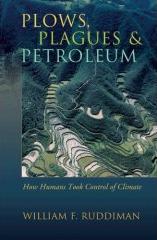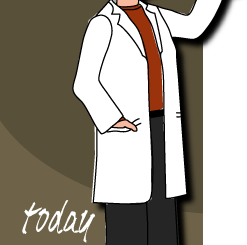 Global Warming Reality CheckIf you watch any news at all, I'm sure you're aware that the world is going overheat in the next decade and we're all going to die. And all becuase you won't buy a hybrid and you forgot to recylce that soda can the other day. Or maybe not. Either way, with all the doom and gloom we've been hearing lately about global warming, I decided it was time I did some actual reading in this area.
Global Warming Reality CheckIf you watch any news at all, I'm sure you're aware that the world is going overheat in the next decade and we're all going to die. And all becuase you won't buy a hybrid and you forgot to recylce that soda can the other day. Or maybe not. Either way, with all the doom and gloom we've been hearing lately about global warming, I decided it was time I did some actual reading in this area.As a scientist, I already understood the process of burning fossil fuels and the greenhouse effect, but I wanted a deeper understanding of climate science. What effect have humans had? Is it really all that bad? If so, is there anything we can do about it? Etc. To get at these answers, a collegue whose boyfriend is an aspiring meteorologist lent me Plows, Plagues and Petroleum by William Ruddiman. This is not a politcal book. It doesn't try to make any moral arguments about public policy. It simply addresses the science of climate. How climates naturally change over time and how humans have affected climate changes in recent history.
If you listen to the media and the talking heads, global warming is the result of the industrial revolution. It's all the fossil fuels we're burning. All the SUVs we're driving. If it weren't for us glutonous Americans, the civilized world would still be living in the Garden of Eden. However, the truth is far less dramatic—though far more interesting.
Humans began affecting the Earth's climate over 8,000 years ago with the dawn of agriculture. Farming requires open land. So humans began cutting down trees. And the more they farmed, the more the population grew and the more land they had to clear for more farming. And so on. Less forested land means less carbon dioxide uptapke from the atmosphere. (Carbon dioxide is the major greenhouse gas responsible for global warming.) Also, the flooding of large areas in Asia for growing rice produces lots of methane (another greenhouse gas). More rice fields equals more people equals more rice fields.
And all this has certainly affected the climate. In fact, research shows that it has almost certainly prevented the occurance of an ice age. If you think a Noreaster is bad, try living in an ice age.
Has the industrial revolution accelerated the rise in greenhouse gases? Yes, dramatically. Have we seen the full affects of this? No. Do we know what those affects will be? No. You see, the Earth is rather slow to respond to atmospheric changes. Furthermore, different aspects of the Earth's climate (ocean temperatures, land temperatures, ice sheet thickness, etc) respond at different rates and so it's very difficult, if not impossible, to tell what the future holds. Will things warm up a bit? Certainly.
Should we be concerned? Maybe, but here's the catch. There probably isn't anything we can do that's going to have any impact. It takes hundreds, or thousands, or millions of years, (depending on the specific cycle we're talking about) for changes to become apparent. Trading in your SUV for a hybird may be good for air quality and your wallet, but it's not going to stave off global warming. Not even if we all bought hybrids.
Another thing you often won't read about in the media coverage is that the Earth undergoes constant climate cycles on the order of thousands and millions of years due to the rotation and tilt of the Earth relative to the Sun. And the climate conditions we're seeing now and are likely to see in the future aren't any hotter or colder than the Earth would naturally experience. We have certainly affected the timing of these changes, but not the magnitude.
If you want to know more about global warming and the affect humans have had on the climate, I highly recommend Ruddiman's book. It's somewhat technical, but the interested reader shouldn't have any trouble understanding the authors explanations. It's particulary interesting how Ruddiman ties together seemingly disparate areas of research to make a coherent point. Areas such as anthropology, medievil history, oceanography, climatology, etc. And he does it all without preaching or castigating the reader.















0 comments
Post a Comment | Back to Hey Paul.